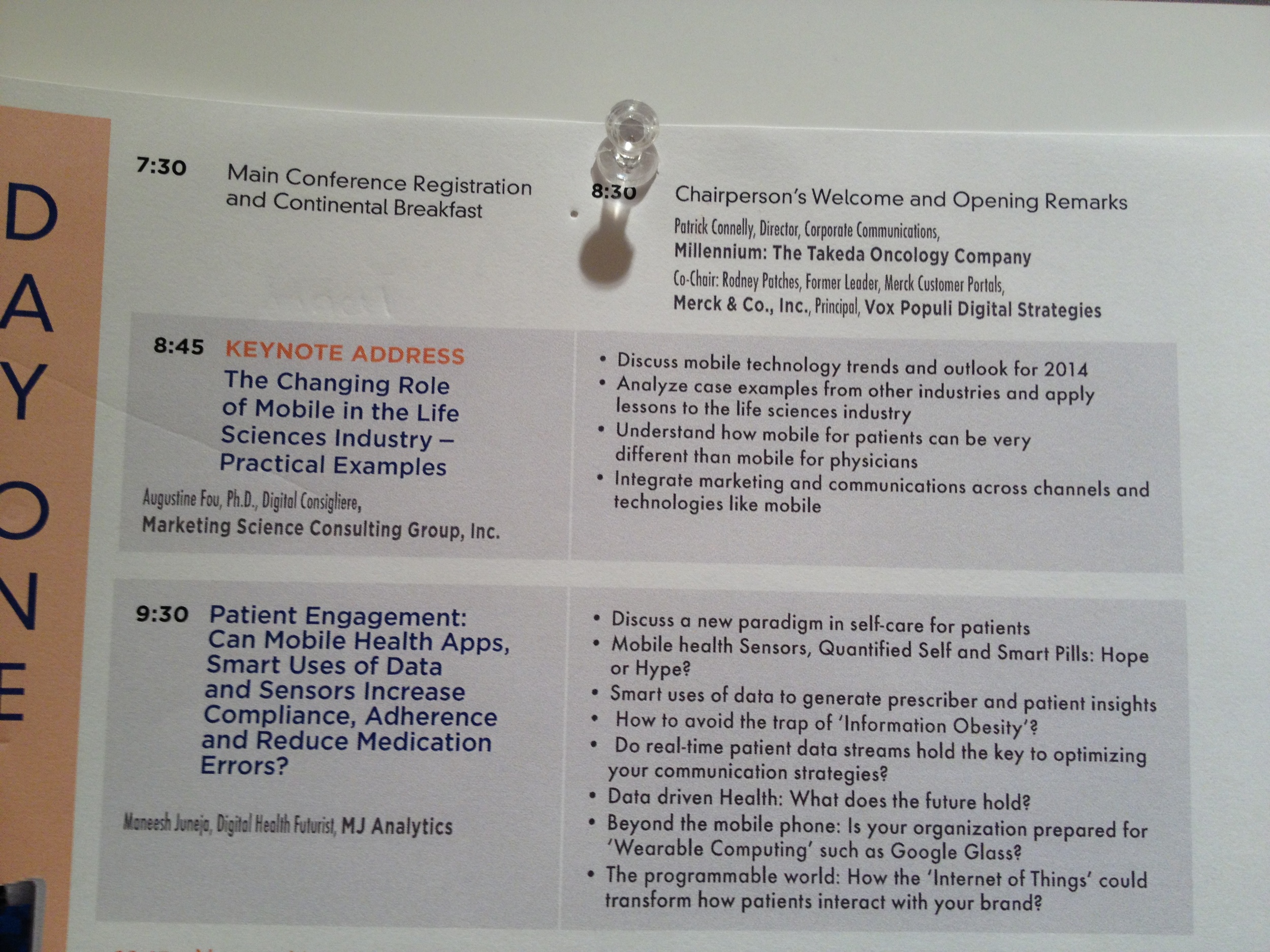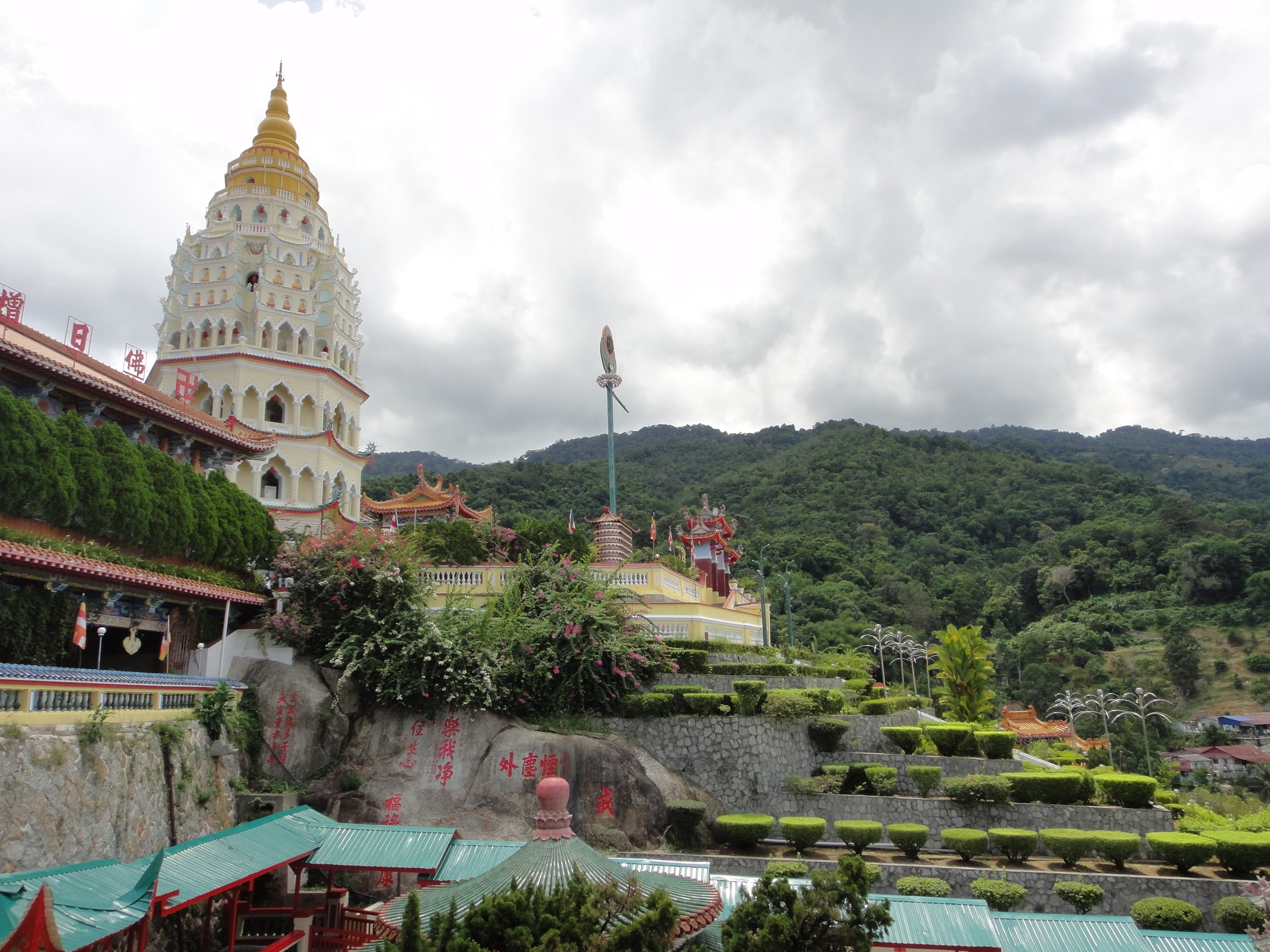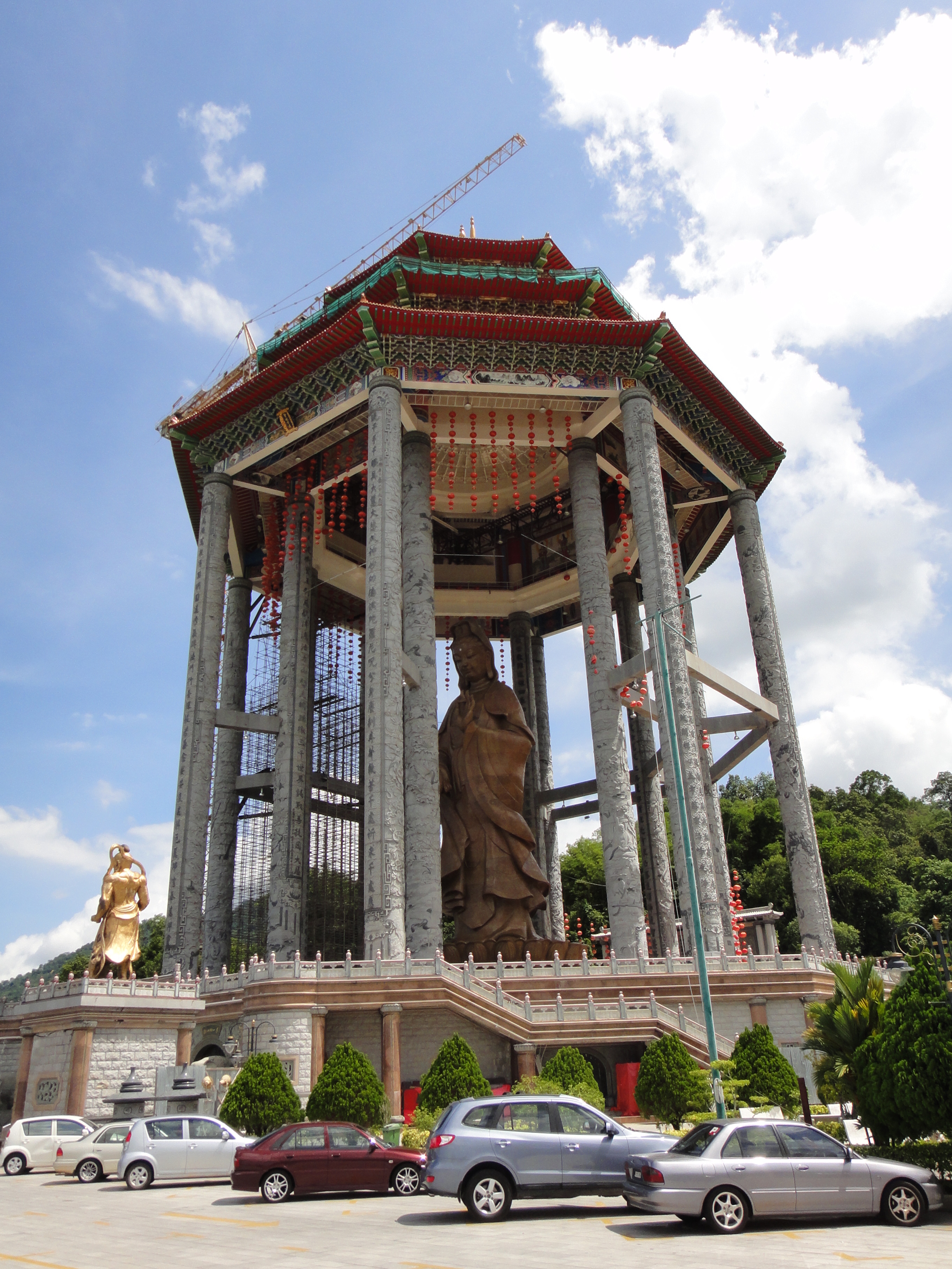Body Computing Conference 2013
So one week ago, I attended the 7th Body Computing Conference at USC, hosted by Dr Leslie Saxon. I first attended in 2012, and found it extremely refreshing. Why?
Science driven agenda
Speakers who have actually built stuff
A warm and family like atmosphere
Maria Binaghi from WIkiLife
This is definitely now one of my top 5 events. I was invited to the pre conference dinner, where one of the speakers was Maria Binaghi from Wikilife. They have come up with Data Donors, a new platform that connects a number of devices and apps and by sharing your information, you can help them to create an extensive database that can be used by researchers to improve health and eradicate illness. I love the idea, but for me personally, I believe we should be compensated financially in some way for sharing our health data, especially if this platform scales at a global level.
A civilised affair
BCC is probably the most civilised event I attend. Why? Lunch gets served to you at your table. Ever been to a super large conference only to grab a boxed lunch, find all the seats are taken, and end up sitting on the floor? One of the other brilliant things is the wireless at USC. Not only is it free, but it covers the entire campus, even if you are not in a building, but just walking down the street!
Panoramic view of Town & Gown venue
Human shared experiences matter more than devices
BioGram app screen with heart rate added to the picture
One of the first sessions of the day was by Dr Saxon and Charlie Haskins. In an article a few weeks back where Dr Saxon talked about the future of body computing not being about devices, but about experiences, a new app was mentioned. An app that combines heart rate data with Instagram! This app, BioGram, that is being developed at USC was shown for the 'first time' at BCC.
THE future is about 'context'. For example, knowing WHY my heart rate was elevated at 10.20am. Was it because I was at a conference surprised by a new app or was it because I was stuck in a traffic jam on the freeway at rush hour? Just having a picture associated with the heart rate measurement is a step forward. What other 'contextualised' data could YOU capture to help understand the meaning of the biometric data at that moment in time?
Pioneers and Visionaries
When I'm at BCC, I'm humbled by the brilliant minds that gather there. One of the highlights of the day was hearing from Andy Thompson, Co-Founder and CEO of Proteus Digital Health who said;
In the 20th century, we've built a sick care system, built to solve problems of that era, which were largely acute. It was also built using signature technologies of that era.
Wain Fishburn, Partner at Cooley made the following point regarding the next 10 years.
To really do the sensing that's going to allow this ambient influence in healthcare, you've got to get well beyond surface, get into the body, got to be touching the blood. The data will matter, more than ever, but it will require a lot of integration.
I was pleased to see that a good friend of mine, Dr Michelle Longmire delivered a demo of her new system, Medable in a session titled 'Digital doctoring: Diagnosis and treatment through Digital Information'. The video of her demo, and the video of Andy Thompson's talk are below [Note: You may have to turn the volume up very high in order to hear the audio]
Demo by Dr Michelle Longmire
Andy Thompson, CEO of Proteus Digital Health
Dr Dave Albert - A true visionary!
Talking to Dr Dave Albert is always fascinating. At the event, he launched AliveCor's ability to work with Android phones, in addition to iPhones. I'm still amazed by the ability to perform an ECG using my phone! He and Dr Saxon also launched a new 1 year study using the AliveCor heart monitor.
How can sensors really make a difference?
At the end of the event, Esther Dyson remarked on the need for more post-marketing surveillance, in addition to clinical trials. Sensors may provide additional data to regulators and pharmaceutical firms wishing to understand the safety of drugs in the real world. This arena was one in which I worked in at GSK for 9 years.
I had access to the largest patient databases on the planet, yet I often viewed the data from health insurance claims and EHRs as incomplete. The data told me, Who, What, When and Where? It didn't tell us Why? For example, from the data, I might see a 65 year old male patient was diagnosed in the ER with Angina on Wed 30th Jan 2008 and prescribed a drug to control the angina. According to the care pathway, let's say they were supposed to see the cardiologist after a month, but there was no record of such visit in the database. After 6 weeks they had an Adverse Drug Reaction, which was recorded in the database. Why didn't they visit the doctor after 30 days? Could real-time data from sensors help us answer WHY? I certainly hope so.
What else could BCC cover?
The legendary Dr Leslie Saxon!
As much as I enjoyed the event, one aspect of Body Computing was missed out, Privacy, Security & Ownership of the health data. For many innovators, their current business models work on the basis that the person wearing the technology trusts the vendor with security of their data, does not own their own data, and does not necessarily have control over who can access their data. Nothing wrong with that, except that these points should really be discussed at events such as BCC. High tech toilets have already been hacked. With the Internet of Things expected to connect billions of devices, and Google wanting to put implants in us, what are the risks that our bodies and wearable technology could be hacked to gain access to our health data? You may believe that your body's data is useless on the black market. However, what if you are HIV+, have a form of cancer or are diabetes type 1 - are you aware of the risks of those data points one day being publicly available?
In addition, having given a talk at Health 2.0 Silicon Valley on what's happening outside of America, I believe BCC could be enhanced by having innovators in this arena, from around the world. I'd certainly love to see demos of sensors from Emerging Markets such as India and China. Aren't you curious what sensors exist from a combined population of 2.5 billion?
The future is 'Contextualised' data
We need a lot more 'contextualised' data to truly unlock the value of this body computing technology, otherwise in 10 years time, we run the risk of having lots of historical 'big data' available in healthcare, but offering little or no real value to decision makers.
[Disclosure: I have no commercial ties to the companies & products mentioned above]


















































































